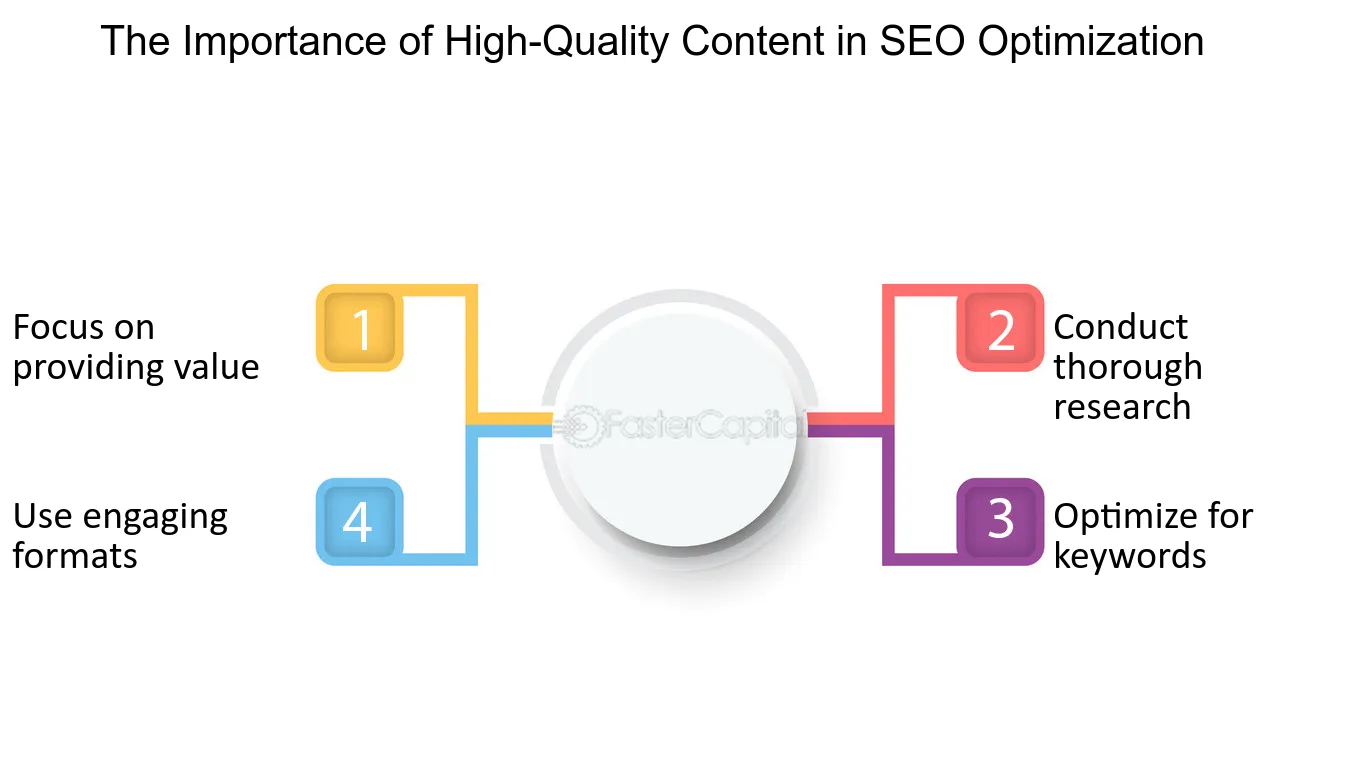
Unlocking the Power of Content Marketing: How to Boost SEO with Strategic Techniques
How to Use Content Marketing to Boost SEO
In the ever-evolving landscape of digital marketing, content has emerged as a powerful tool for businesses looking to improve their search engine optimization (SEO) strategies. By creating and distributing valuable and relevant content, companies can not only engage with their target audience but also boost their online visibility. This guide, “Unlocking the Power of Content Marketing: How to Boost SEO with Strategic Techniques,” will delve into the various ways in which businesses can leverage content marketing to enhance their SEO efforts and drive organic growth. From creating compelling blog posts and videos to optimizing website content and building quality backlinks, this resource will provide valuable insights and practical tips for maximizing the impact of your content marketing initiatives on SEO performance.
Content marketing plays a crucial role in boosting SEO by providing valuable and engaging content that attracts and engages users. Search engines like Google prioritize websites with high-quality and relevant content, making content marketing an essential strategy for improving search engine rankings. By consistently creating and publishing informative and helpful content, businesses can demonstrate their expertise in their industry, build trust with their audience, and increase their visibility online.
In simple terms, content marketing helps businesses show up higher in search engine results by providing users with valuable information that answers their questions and solves their problems. When search engines see that a website regularly produces high-quality content that is relevant to users’ searches, they are more likely to rank that website higher in search results. This means that businesses can increase their online visibility, attract more organic traffic, and ultimately drive more leads and sales through effective content marketing strategies.
Creating high-quality and relevant content is essential for boosting your website’s visibility on search engines like Google. When you create content that is valuable, informative, and engaging for your target audience, you are more likely to attract and retain visitors to your site. This can lead to increased traffic, higher engagement rates, and ultimately, better SEO.
To optimize your content for SEO, it’s important to focus on using relevant keywords strategically throughout your content. Keywords are the words or phrases that people type into search engines when looking for information. By incorporating these keywords naturally into your content, you can signal to search engines that your content is relevant to a particular topic or query.
Additionally, organizing your content with clear headings, subheadings, and bullet points can help search engines understand the structure of your content and improve its readability for users. Including internal links to other relevant pages on your website can also help search engines crawl and index your site more effectively. By creating high-quality and relevant content that is optimized for SEO, you can improve your website’s search engine rankings and attract more organic traffic.
Keywords are the building blocks of SEO success. By strategically incorporating relevant keywords into your content, you can improve your website’s visibility in search engine results. To leverage keywords effectively, start by conducting thorough keyword research to identify the terms and phrases that your target audience is searching for. Once you have identified these keywords, strategically place them throughout your website content, including in titles, headings, meta descriptions, and body copy.
By incorporating keywords naturally and strategically into your content, you can signal to search engines that your website is a relevant source of information on a particular topic. This can help improve your website’s ranking in search results, making it easier for potential customers to find you online. Additionally, by regularly updating your content with fresh keywords and monitoring their performance, you can continuously optimize your SEO strategy for maximum impact.
Meta tags and descriptions play a crucial role in optimizing your website for search engines. These hidden snippets of code provide search engines with important information about your content, helping them understand the relevance of your pages to users’ search queries. By strategically incorporating relevant keywords in your meta tags and descriptions, you can improve the visibility of your website in search results.
When crafting meta tags, focus on including key phrases that accurately reflect the content of your page. Make sure to write compelling meta descriptions that entice users to click through to your website. By optimizing these elements, you can increase the likelihood of your pages appearing higher in search engine results pages (SERPs) and attract more organic traffic to your site. Remember, meta tags and descriptions are valuable opportunities to communicate with both search engines and users, so use them wisely to enhance your SEO efforts.
In order to boost your website’s SEO, it’s crucial to incorporate both internal and external links strategically. Internal links are hyperlinks that connect different pages within your own website, while external links lead to other websites. By including relevant internal links throughout your content, you can help search engines understand the structure of your site and the hierarchy of your pages. This can improve the overall user experience and increase the time visitors spend on your site, which are important factors for SEO rankings.
External links, on the other hand, can enhance your website’s credibility and authority by linking to reputable sources or relevant content from other websites. When search engines see that your site is connected to reliable sources, they are more likely to view your website as trustworthy and valuable to users. However, it’s important to use external links sparingly and ensure they are related to your content in order to maintain a good SEO balance. By incorporating both internal and external links strategically, you can optimize your content for SEO and improve your website’s visibility in search engine results.
Social media is a powerful tool that can significantly impact your website’s search engine optimization (SEO) efforts. By harnessing the power of social media platforms such as Facebook, Twitter, and Instagram, you can increase your online visibility and drive traffic to your website. When you share high-quality content on social media and engage with your audience, you are creating valuable backlinks to your website. These backlinks signal to search engines that your site is reputable and authoritative, which can improve your search engine rankings.
In addition to backlinks, social signals such as likes, shares, and comments on your social media posts can also positively impact your SEO. Search engines like Google take into account social signals when determining the relevance and credibility of a website. By building a strong social media presence and actively engaging with your audience, you can improve your chances of ranking higher in search engine results. Remember to optimize your social media profiles with relevant keywords and hashtags to further boost your SEO efforts. By strategically leveraging social media for SEO, you can effectively enhance your online visibility and drive organic traffic to your website.
Measuring and analyzing content performance is crucial for any successful content marketing strategy. By tracking key metrics such as website traffic, engagement, and conversion rates, businesses can gain valuable insights into what content is resonating with their audience and driving results. This data allows marketers to identify what types of content are most effective in attracting and retaining customers, as well as which channels are delivering the best return on investment.
To optimize content performance, it’s important to regularly review and analyze this data to make informed decisions about future content creation and distribution. By using tools like Google Analytics and social media analytics, businesses can track the performance of their content over time and make adjustments as needed to improve results. This data-driven approach not only helps in understanding what works best for SEO but also helps in identifying areas for improvement and optimization to drive even better results in the future.
In conclusion, measuring and analyzing content performance is essential for maximizing the impact of your content marketing efforts. By consistently monitoring key metrics and using data to inform your strategy, you can ensure that your content is effectively reaching your target audience, driving traffic to your website, and ultimately helping you achieve your business goals. With a data-driven approach, businesses can unlock the full potential of their content marketing efforts and boost their SEO rankings.
In today’s digital age, having mobile-friendly content is crucial for boosting your website’s search engine visibility. With more and more users accessing websites on their smartphones and tablets, it’s essential to ensure that your content is optimized for mobile devices. This means that your website should be responsive and easily accessible on different screen sizes, load quickly, and provide a seamless user experience.
To implement mobile-friendly content strategies, start by creating content that is concise and easy to read on smaller screens. Use shorter paragraphs, bullet points, and headings to break up the text and make it more scannable. Additionally, optimize your images and videos for mobile viewing by reducing file sizes and ensuring they load quickly. Make sure your website design is mobile-responsive, meaning it adjusts to fit different screen sizes automatically. By focusing on mobile-friendly content strategies, you can improve your website’s SEO performance and attract more mobile users to your site.
Enhancing user experience through SEO techniques is crucial for improving website visibility and ranking on search engines. By optimizing your website with relevant keywords, meta tags, and high-quality content, you can make it easier for users to find and navigate your site. This not only increases the chances of attracting organic traffic but also keeps users engaged and encourages them to stay longer on your website.
Incorporating user-friendly design elements, such as clear navigation menus, fast loading times, and mobile responsiveness, can further enhance the overall user experience. Additionally, creating valuable and informative content that addresses the needs and interests of your target audience can help build trust and credibility with users. By focusing on both SEO and user experience, you can create a website that not only ranks well on search engines but also provides a positive and engaging experience for visitors.



